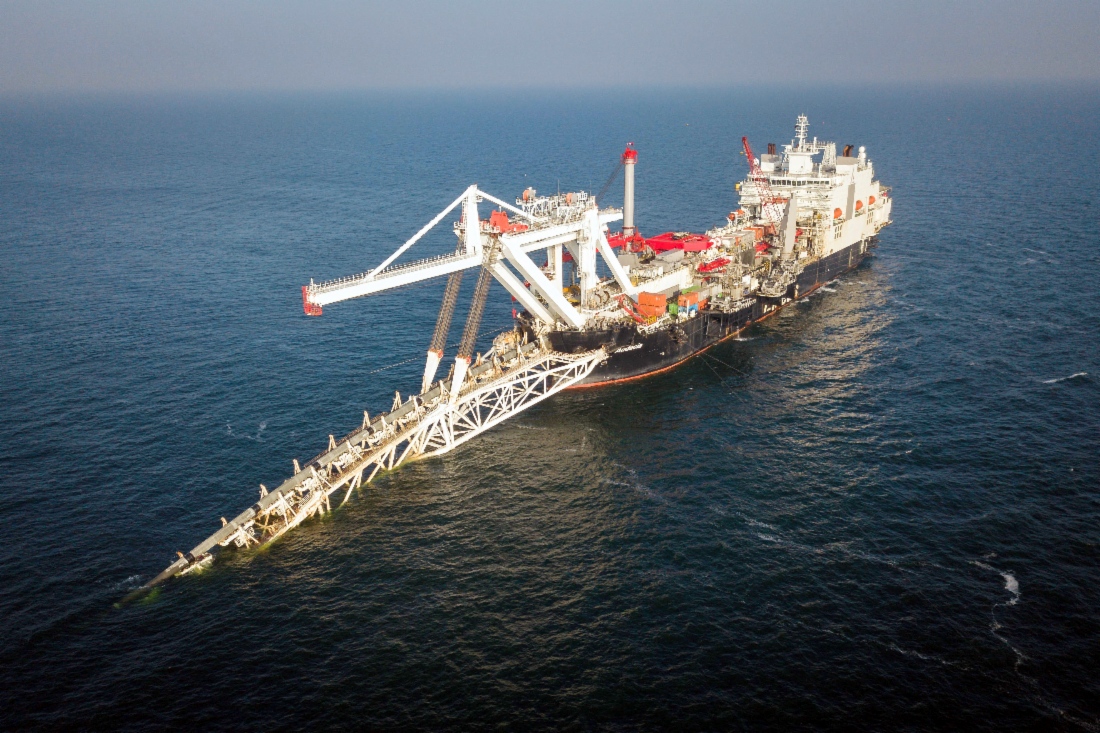Nord Stream 2 Seeks Updated Permit to Complete Pipeline in Danish Waters
COPENHAGEN/MOSCOW (Reuters) — The Nord Stream 2 pipeline has requested a permit allowing it to use pipe-laying vessels with anchors to complete the final roughly 120-kilometer (75-mile) stretch of pipeline in Danish waters, Denmark's energy agency (DEA) said on Tuesday.
Work on the project stopped in December as pipe-laying firm Swiss-Dutch Allseas suspended work due to U.S. sanctions targeting companies providing vessels laying Nord Stream 2 pipes.
The DEA did not say how the work would proceed in the face of a new risk of sanctions, but its decision would be "purely administrative" and in accordance with the United Nations Convention on the Law of the Sea.
The Trump administration opposes the project on the grounds it would strengthen Russia's economic grip over Europe.
This month, U.S. senators announced a new bill expanding sanctions on the Nord Stream 2. The bill is yet to be passed by Congress and signed by Trump.
"Pipe-laying vessels with anchors have been assessed in the environmental impact assessment but were not included in the permit from October 2019," the DEA said in a written comment.
The $11 billion project is adding a second, twin natural gas pipeline from Russia to Germany across the Baltic Sea to double Nord Stream's annual capacity to 110 billion cubic metres.
Nord Stream 2 confirmed to Reuters submission of the request on Tuesday.
"The amendment relates to the potential use of pipelay vessels that use anchors for positioning and it only relates to the clarification of one permit condition," Nord Stream 2 said in emailed comments.
Neither DEA nor the Nord Stream 2 named the vessel or the vessels which may finish the job.
The pipe-laying ship Academic Cherskiy, which Moscow could use, is moored near Germany's Mukran port in the Baltic, the staging area for the pipeline's construction, Refinitiv Eikon data showed. Cherskiy has changed ownership from Gazprom Fleet to regional firm STIF, a Russian registry showed this month.
Russia's Gazprom is taking on half of the project's planned costs. The rest is being shared by Austria's OMV, Uniper and Wintershall of Germany, Royal Dutch Shell and France's Engie.
Related News
Related News

- Keystone Oil Pipeline Resumes Operations After Temporary Shutdown
- Freeport LNG Plant Runs Near Zero Consumption for Fifth Day
- Biden Administration Buys Oil for Emergency Reserve Above Target Price
- Mexico Seizes Air Liquide's Hydrogen Plant at Pemex Refinery
- Enbridge to Invest $500 Million in Pipeline Assets, Including Expansion of 850-Mile Gray Oak Pipeline





Comments